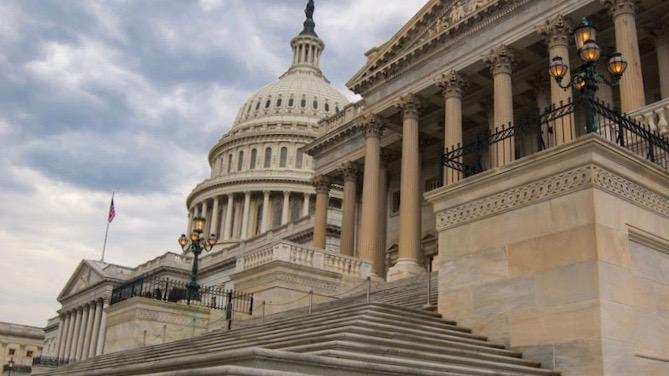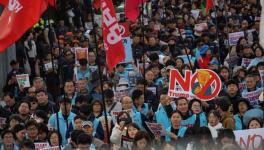Trump Signs $900 bn Stimulus Plan, But Millions Remain in Limbo for Next Few Weeks

After a week-long delay and an eleventh hour threat of a veto, US president Donald Trump finally signed the USD 900 billion stimulus plan, late on Sunday, December 27. The plan was passed a day after federal unemployment benefits for millions of US citizens lapsed, which are extended again in the new bill. However, the roll out of the plan is expected to take some time, putting millions in a period of uncertainty.
The two federal unemployment assistance programs, Pandemic Unemployment Assistance (PUA) and Pandemic Emergency Unemployment Compensation (PEUC), expired on December 26. These programs were introduced by the US Congress as part of the USD 1.4 trillion CARES Act passed in March to address the pandemic-induced economic crisis. Nearly 14 million US citizens, including the unemployed, gig economy workers and lower income groups, have used these payments to make ends meet.
While the newly passed bill extends these programs, the processing of payments under them will take longer than expected. According to a report in Time’s NextAdvisor, payments under the extended schemes will start only in the later part of January. There are logistics that need to be smoothed out with various federal agencies, which are also busy transitioning to the new administration of president-elect Joe Biden, set to take over on January 20.
Last week, president Trump lashed out at the US congress for slashing stimulus checks and benefits for those affected by the economic fallout of the pandemic. Trump specifically attacked the USD 600 one-time stimulus checks in the plan as a “disgrace”, and demanded that those be upgraded to USD 2,000 and more for families.
This went completely against the stand taken in the congress by Trump’s Republican Party, which currently holds the majority in the Senate. The Republicans refused to expand stimulus payments for families and the unemployed, which was one of the central issues delaying the negotiations on the bill for months.
Pressure from the ground for a better stimulus plan
After long-drawn talks, the final relief plan slashed major stimulus and aid plans for individuals and families by half. The one-time stimulus payment came down to USD 600 from USD 1,200, while supplemental unemployment benefits came down from USD 600 a week to USD 300. It also introduced strict income brackets to decide on how each family gets paid. The Liberation referred to the stimulus plan as the congress giving the “working class the middle finger.”
While both the Democratic and Republican leadership have called these provisions “significant” and a “shot in the arm”, there is growing pressure from the ground for an amended bill. The Democratic Party, which leads the House of Representatives, endorsed Trump’s call to expand the stimulus. Though he has signed the bill, Trump has sent it back to the Congress with suggestions on expanding aid and eliminating what he deemed were “wasteful” expenses.
While these are mere suggestions that the Congress is not bound to consider, House speaker Nancy Pelosi and Senate minority leader Chuck Schumer, along with their progressive counterparts in the party, plan to renegotiate for a better deal after Biden takes over. The Republican leadership subdued by Trump’s about-turn have taken a more cautious note and conceded that the plan is not comprehensive enough.
Even on the ground, calls are already being made for a new plan for millions of citizens affected by the pandemic. Last week, the Congressional Progressive Caucus, which includes progressive members of the Democratic Party, released a campaign for a “People’s Agenda” in collaboration with over three dozen grassroots movements and trade unions. These include the Poor People’s Campaign, Service Employees International Union, and People’s Action, among others.
The campaign will seek to put pressure on the upcoming Biden government to not only clear a more comprehensive COVID-19 relief plan, but also push for a progressive agenda that includes cancelling of student debts, raising the minimum wage to USD 15, universal access to a social security net, protecting the working class and their rights including housing rights, major changes in the criminal justice, and an end to “endless wars”.
Courtesy: Peoples Dispatch
Get the latest reports & analysis with people's perspective on Protests, movements & deep analytical videos, discussions of the current affairs in your Telegram app. Subscribe to NewsClick's Telegram channel & get Real-Time updates on stories, as they get published on our website.
























